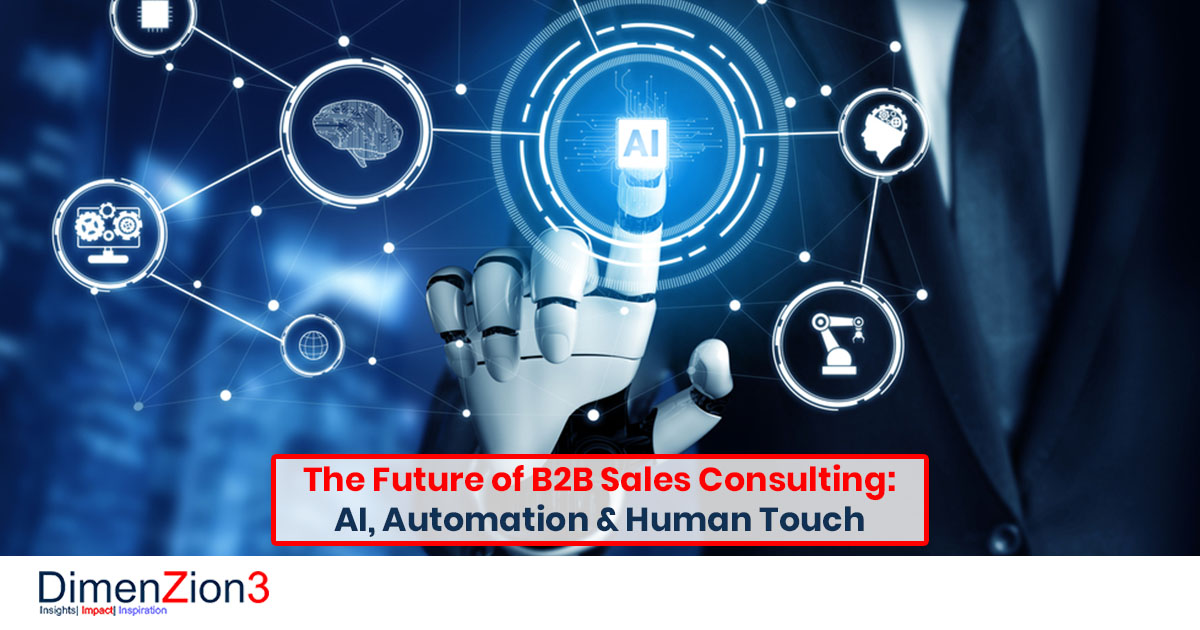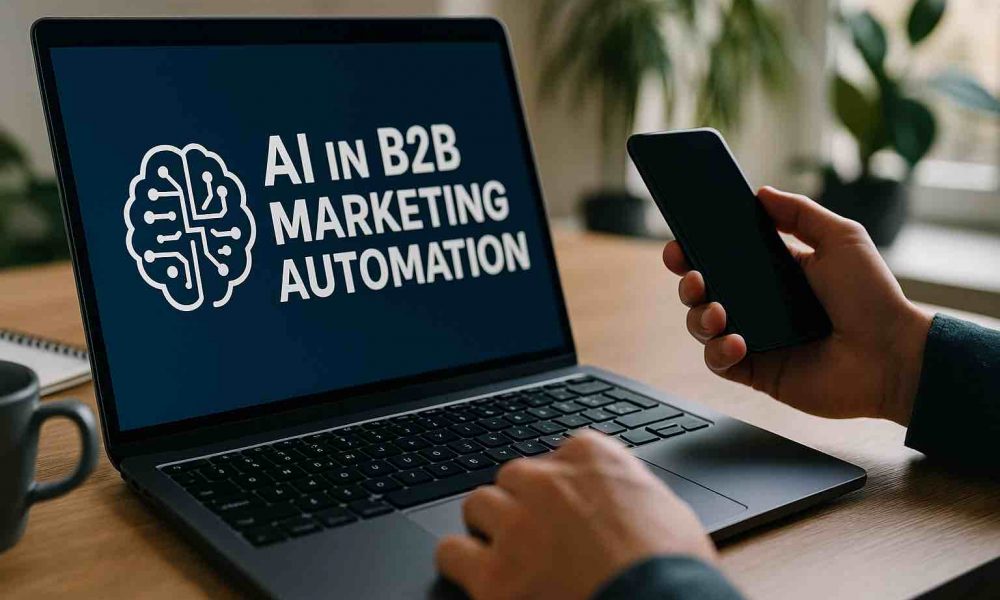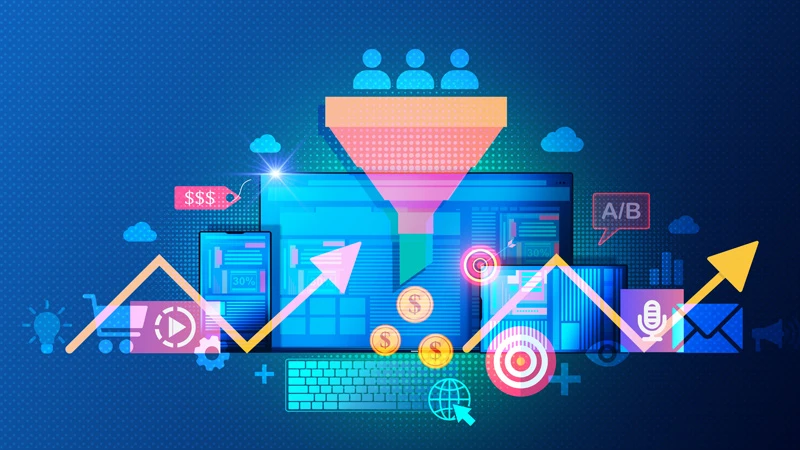Unlock Performance and Growth With AI Automation for B2B Firms
AI automation is transforming the landscape for B2B firms. It decreases and improves procedures reliance on human treatment. This shift permits organizations to make quicker, data-driven decisions. As companies discover which processes to automate, they need to likewise think about the right devices to apply. Challenges stay in taking on AI modern technology. The effects of these changes might form the future of numerous firms in methods yet to be totally comprehended
Recognizing AI Automation in the B2B Context
As services progressively look for efficiency, recognizing AI automation in the B2B context comes to be necessary. AI automation involves utilizing advanced innovations to enhance operations, lower human treatment, and boost decision-making procedures. In the B2B landscape, this can manifest in different types, such as automating client service communications, managing supply chain logistics, or enhancing marketing campaigns. Business can take advantage of AI to assess enormous datasets quickly, allowing them to recognize fads and insights that notify tactical choices. AI systems can integrate seamlessly with existing modern technologies, offering a cohesive platform for handling company features. This understanding prepares for companies to discover exactly how AI can transform their operations, enhance performance, and ultimately foster sustainable development in a competitive market.
Trick Advantages of Executing AI Automation

Identifying Procedures Suitable for Automation

Selecting the Right AI Tools for Your Business
When B2B companies think about automating their processes, selecting the appropriate AI tools comes to be important for achieving desired outcomes. Firms should begin by evaluating their distinct demands and purposes, ensuring placement with company goals (Minarik AI). Assessing the scalability, combination, and versatility capacities of possible tools is critical, as these factors determine long-term efficiency. Organizations should likewise take into consideration user-friendliness and the degree of support given by vendors, as these aspects can influence successful execution. On top of that, analyzing customer testimonials and instance researches can offer insights right into exactly how particular AI remedies do in real-world situations. By diligently choosing AI devices that fit their operational needs, B2B firms can boost efficiency and drive development while reducing potential interruptions
Getting Rid Of Challenges in AI Fostering
B2B firms commonly experience considerable challenges in taking on AI modern technologies, specifically issues associated with data high quality and resistance to alter management. Poor information quality can hinder the performance of AI systems, while worker hesitation to accept new procedures can stall execution initiatives - Growth Systems For B2B. Dealing with these difficulties is important for successful AI assimilation and maximizing its potential advantages
Data Quality Issues
Assuring high information top quality is crucial for the effective fostering of AI innovations in business-to-business environments. Unreliable, insufficient, or outdated information can drastically prevent AI efforts, resulting in erroneous insights and poor decision-making. Business typically encounter obstacles such as data silos, variances across different resources, and an absence of standardized information formats. To conquer these issues, organizations must invest in information cleaning, assimilation, and administration procedures. Carrying out durable information monitoring techniques assures that the information fed right into AI systems is dependable and pertinent. Promoting a society of information top quality awareness among employees can boost data precision over time. By resolving information top quality concerns, B2B business can release the complete potential of AI automation, driving performance and development.
Modification Monitoring Resistance

Measuring the Influence of AI Automation
Measuring the effect of AI automation in B2B firms calls for a clear understanding of vital performance signs (KPIs) that straighten with organization goals. Reliable data analysis strategies are essential for translating the results, while robust ROI assessment methods aid establish the monetary advantages of automation efforts. Together, these elements provide a substantial structure for assessing AI's contributions to business success.
Trick Performance Indicators
Key efficiency signs (KPIs) act as crucial tools for B2B firms to examine the effectiveness of AI automation initiatives. By establishing clear metrics, companies can determine enhancements in operational effectiveness, expense decrease, and profits growth directly attributable to automation. Typical KPIs include cycle time reduction, mistake rates, consumer complete satisfaction ratings, and staff member performance levels. These indicators provide understandings right into just how AI systems are maximizing processes and improving general efficiency. Additionally, tracking KPIs allows firms to identify areas for further improvement and to align AI automation efforts with calculated company goals. Inevitably, a well-defined framework of KPIs assurances that B2B firms can quantitatively review the influence of AI automation on their procedures and drive continual development.
Information Analysis Strategies
Effective data evaluation techniques play a necessary function in evaluating the effect of AI automation within B2B firms. By using analytical approaches, companies can recognize patterns and patterns in operational data, enabling them to assess the performance obtains accomplished with automation. Methods such as regression evaluation and time collection projecting give understandings right into just how AI-driven processes influence efficiency and decision-making. Additionally, data visualization tools can properly interact searchings for to stakeholders, promoting notified critical decisions. Device discovering formulas can better boost analysis by anticipating future results based upon historical data, supplying workable understandings. Eventually, these techniques enable B2B companies to measure success and optimize their AI automation campaigns, ensuring alignment with organization purposes and boosting general efficiency.
ROI Evaluation Strategies
Assessing the return on investment (ROI) of AI automation is vital for B2B firms seeking to recognize the economic implications of their technological initiatives. Business can employ various ROI analysis approaches to my blog gauge the efficiency of AI executions - Growth Systems For B2B. One efficient approach entails calculating cost savings by contrasting functional expenses prior to and after automation (Minarik AI). In addition, measuring performance renovations through crucial performance indications (KPIs) helps quantify the advantages of AI. Client complete satisfaction metrics can likewise supply insights right into the influence of automation on solution top quality. To assure an extensive assessment, business need to take into consideration both direct financial returns and abstract benefits, such as boosted decision-making capabilities and competitive advantage. This complex examination allows B2B business to make informed choices relating to future investments in AI innovation
Future Fads in AI Automation for B2B Business
What developments exist in advance for AI automation in B2B business? Emerging fads show a considerable change towards boosted data analytics capabilities, enabling companies to make even more educated decisions. Anticipating analytics will certainly end up being significantly important, allowing business to prepare for market changes and client requirements. Furthermore, the assimilation of AI with Web of Points (IoT) modern technology is expected to enhance operations by supplying real-time understandings and automation of procedures. Business will certainly also concentrate on boosting consumer experiences via customized marketing driven by AI algorithms. Improvements in all-natural language processing will help with better communication in between companies and customers. As these trends develop, B2B business need to adjust to leverage AI automation properly, ensuring sustained development and affordable benefit.
Frequently Asked Questions
What Industries Advantage one of the most From AI Automation in B2B?
Manufacturing, finance, health care, and logistics sectors profit one of the most from AI automation in B2B. These sectors take advantage of AI to optimize procedures, improve decision-making, and improve overall functional effectiveness, driving considerable growth and technology.
Exactly How Does AI Automation Impact Worker Roles and Responsibilities?
AI automation improves staff member duties and obligations by enhancing recurring jobs, making it possible for workers to concentrate on tactical campaigns. This change promotes skill advancement, boosts productivity, and urges cooperation, inevitably driving organizational growth and development.
What Are Usual False Impressions Concerning AI Automation in B2B?
Usual misconceptions about AI automation in B2B consist of fears of task loss, beliefs that AI can fully replace human judgment, and ignoring the importance of partnership in between AI systems and employees for optimal outcomes.
Just How Can Businesses Ensure Information Privacy With AI Automation?
Services can ensure data personal privacy with AI automation by carrying out robust security protocols, adhering to regulative conformity, conducting regular audits, and training workers on data handling practices to minimize dangers and protect sensitive info.
What Are the Costs Connected With Carrying Out AI Automation?
The costs related to applying AI automation include software procurement, facilities upgrades, training personnel, ongoing maintenance, and prospective downtime throughout integration. Additionally, firms might incur expenses associated with data safety and security and conformity steps.
Gauging the impact of AI automation in B2B companies calls for a clear understanding of key performance indications (KPIs) that line up with business purposes. Trick efficiency indicators (KPIs) serve as crucial devices for B2B business to analyze the efficiency of AI automation initiatives. Effective information analysis strategies play an important function in assessing the impact of AI automation within B2B business. Examining the return on investment (ROI) of AI automation is crucial for B2B business seeking to comprehend the financial implications of their technological campaigns. What developments lie ahead for AI automation in B2B companies?